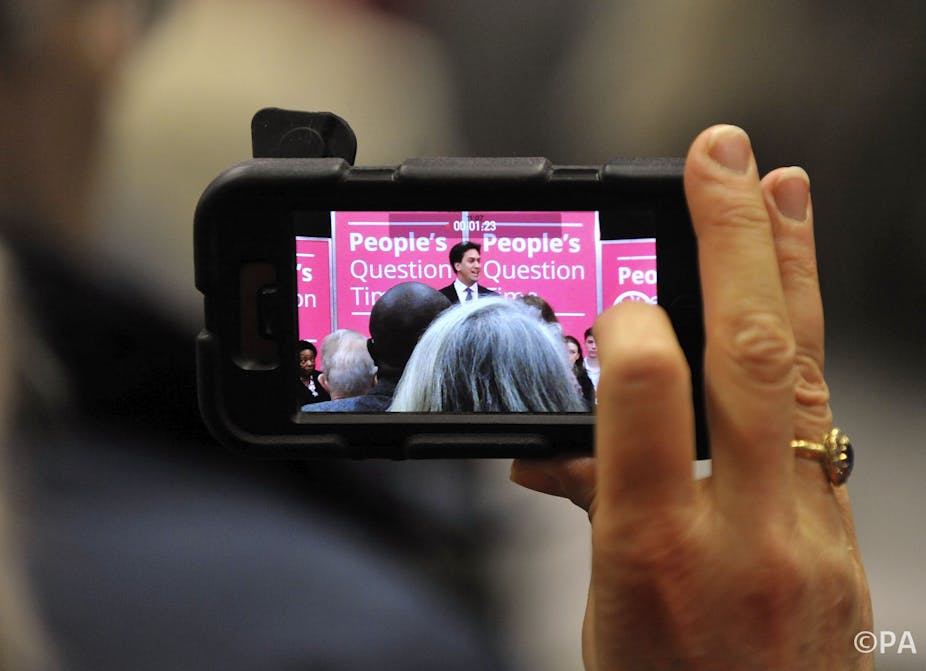For most of us, election coverage is often a somewhat dry affair. The columns of newspapers are littered with the most recent polling results, policy pledges or speculation. Our airwaves are subjected to continuous interviews of politicians and political gurus, along with the occasional stilted campaign ad by the major parties. It was only in 2010 that the public could get a little bit excited about the election, with the prospect of televised leader debates. This year even the debates are not certain.
But now of course, we have social media to keep us entertained.
For political parties during campaign season, social media is a warzone. Memes are tossed around like hilarious handgrenades hoping to cause as much damage to their target as possible. Hashtags can be taken hostage and turned against their creator. No political party ever truly wins the social media war. All they can hope for is to survive without shooting themselves in the foot.
Uphill battle
The primary aim of social media campaigns for parties is to get attention, preferably positive. Having BuzzFeed or the Mail Online write up articles about your latest policy reveal could do wonders in reaching a larger audience. But the internet is a fickle place, and no matter how witty a party thinks its newest slogan is, it is always going to face competition in the form of absolutely everything else that is happening online.
Take for instance the recent case of the great dress debate on Twitter. A Tumblr user uploaded a picture of a dress and asked people whether they thought it was white and gold, or blue and black. Due to some scientific or technical reason for which I am unqualified to discuss (but this person is), some people saw one version of the dress and some people saw the other. The debate raged on Twitter and within the space of a day, the hashtag #thedress had received more than 650,000 mentions. #Whiteandgold had more than 325,000 with #blackandblue trailing behind with just over 100,000.
As is the nature of the internet, it can often be the least serious or most pointless things that drive the most traffic and engagement. In less than 24 hours BuzzFeed had written eight separate articles about the dress which themselves gained a combined 41m views in just one day.
This is what the parties are up against. They must cut through the dense online jungle where entertainment shows and personalities such as the likes of the Great British Bake Off, PewDiePie and Match of the Day have far more followers than either the Labour or Conservative Party. The fact that a single Taylor Swift tweet can get more than 100,000 retweets and yet the Conservative party can barely scrape 60, shows both how much of an uphill battle the parties face in reaching people and also where the average person’s interests lie.
Engaging the electorate
A secondary goal of a party’s social media campaign is to engage with the electorate. Everyone took notice of the success of Obama’s 2012 campaign in using social media to reach out to younger voters and so it is inevitable that this year for the UK election, all of the parties will be looking to tap into the youth vote by engaging with them online
There have already been notable examples in British politics of attempted outreach during an election, such as UKIP’s #WhyImVotingUkip debacle on Twitter last year during the European elections. It was an attempt by one of the party’s official Twitter accounts to reach out to its members and get them to explain to the world why they would be voting UKIP. A good idea at face value, but as like with any weapon of social media warfare, it can be turned against you. People began using the hashtag to mock the stereotypes often associated with UKIP.
One assumes that UKIP learnt a valuable lesson from this, in that you should never underestimate the cynical, satirist nature of the British public, and hope not to make a similar misstep in the coming weeks as the election draws nearer.
With fewer than 60 days to go, we should begin to see the steady expansion of online campaigning as all the parties vie for our attention. Expect your Twitter feeds to be flooded with hashtags of #CameronMustGo, your Facebook timelines to be inundated with sponsored links to party endorsed viral videos, and your friends in real life asking if you’ve seen the latest meme of Farage swilling a pint. For the parties, they no doubt see all these new platforms as a cheap and easy alternative to expensive TV ads or tricky to navigate interviews.
But they should remember, this will be a social media war. War is not easy, war is hell.

